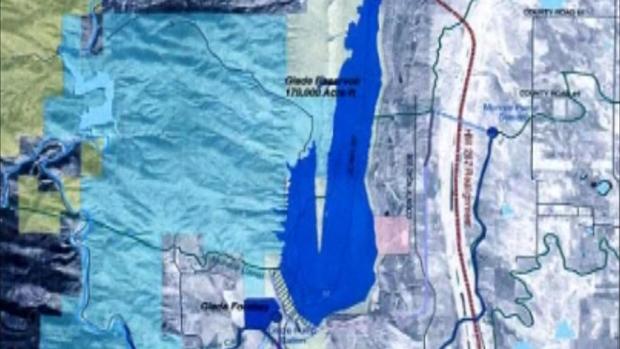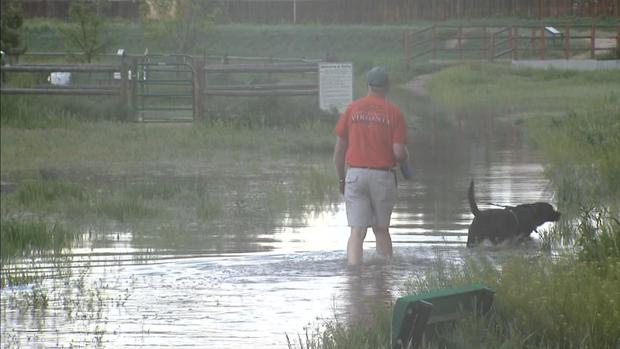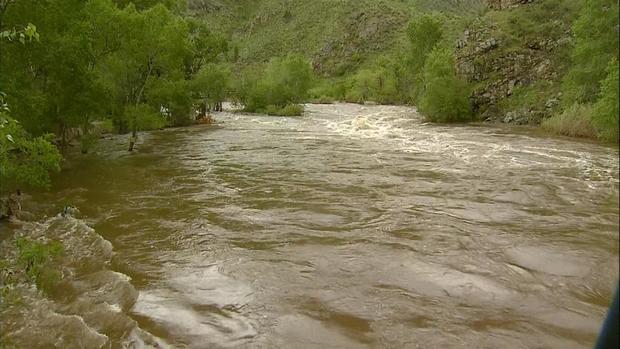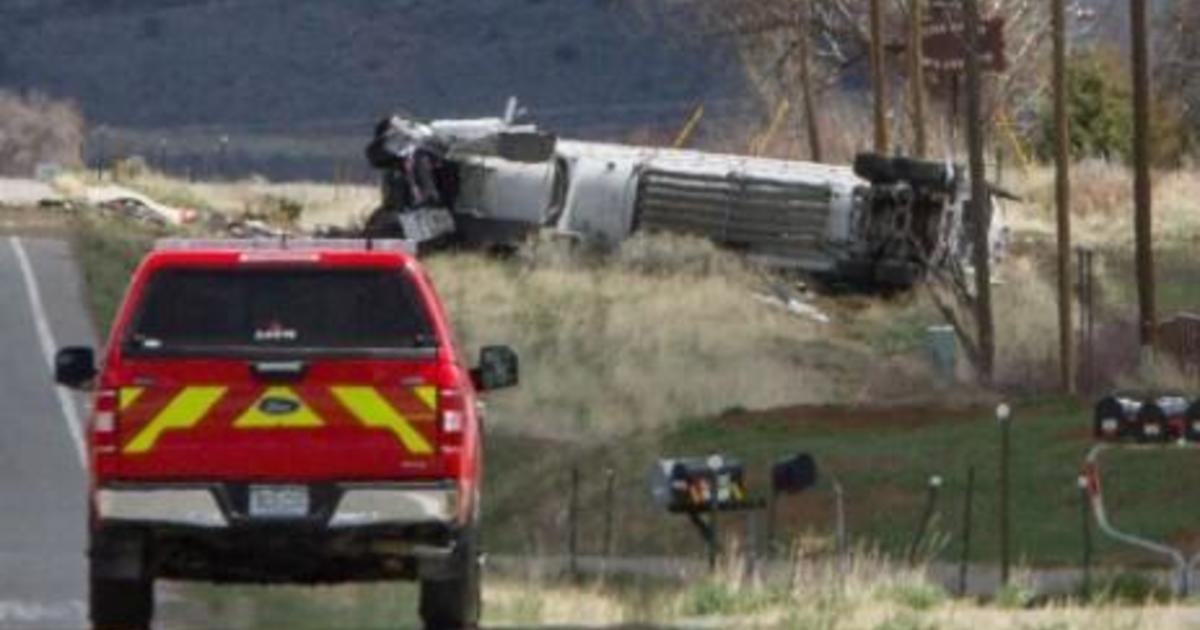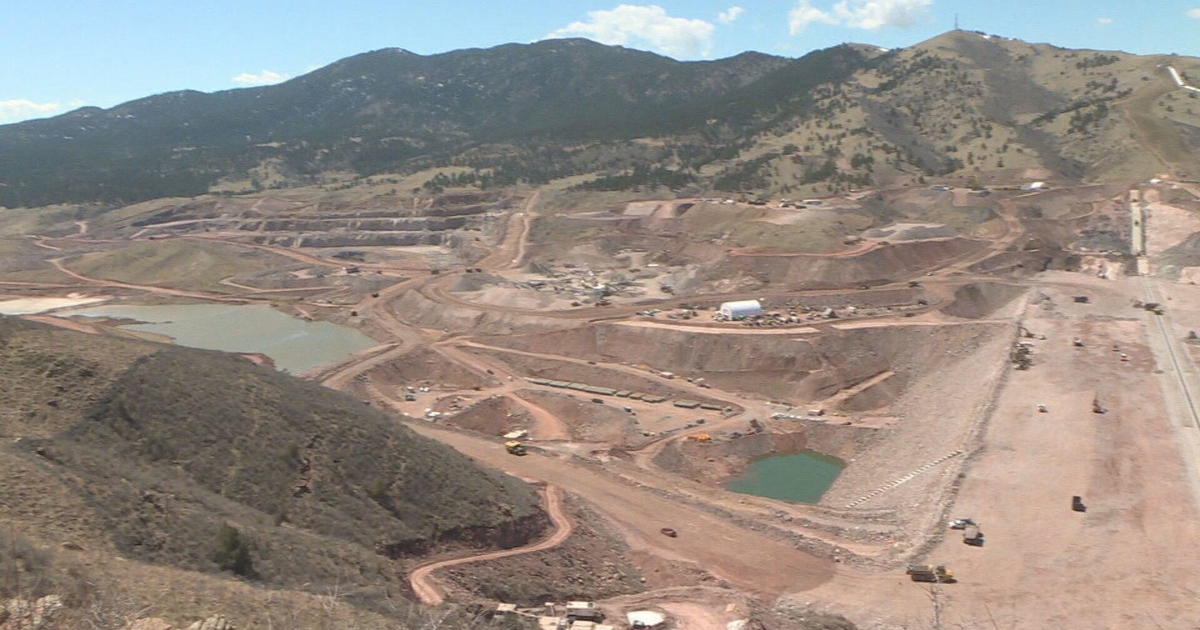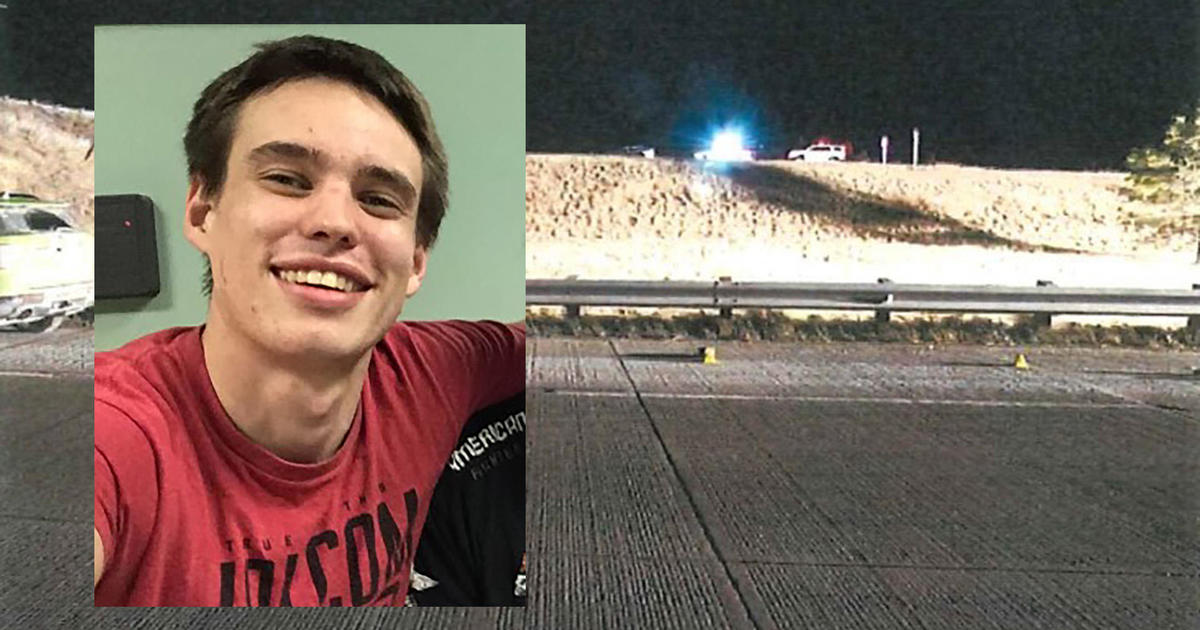Not Just Water: City Says Cache La Poudre's Charm Is Key To Well-Being
FORT COLLINS, Colo. (AP) - A picturesque Colorado river with a peculiar French name is the latest prize in the West's water wars, where wilderness advocates usually line up against urban and industrial development.
This showdown has a new force: City dwellers who say a vibrant river flowing past their streets, parks and buildings is essential to their community's identity and well-being.
The Cache la Poudre - pronounced KASH luh POO-dur - got its name in the early 1800s, when French fur trappers cached gunpowder on its banks. Long a vital source of water for drinking and irrigation, it has become a treasured slice of nature in the booming towns and cities along Colorado's Front Range corridor.
"People need more than jobs and the economy," said Gary Wockner, executive director of Save the Poudre. "They also need art, they need spirituality and they need to touch wild, flowing water and they need it to run through their town."
The Poudre tumbles down from the Rockies just northwest of Fort Collins and then winds eastward through 40 miles of towns, farm fields, pastures and cottonwood trees before emptying into the South Platte River on the plains near Greeley.
A group of 15 cities and water districts wants to divert water from the lower Poudre, below the mountains, when the river is running highest and pump it into a new reservoir. The $600 million Northern Integrated Supply Project would capture water Colorado is legally entitled to keep but has no place to store, backers say.
Since 2009, Colorado could have kept another 1.3 trillion gallons from the South Platte and its tributaries, including the Poudre, but it flowed east to Nebraska because there was no place to put it, said Brian Werner, a spokesman for the Northern Colorado Water Conservancy District, which is overseeing the project.
This debate has all the elements of a traditional Western water fight.
Backers say they need to lock up future sources of drinking water for Colorado's fast-growing population amid the recurring droughts and uncertainty of a changing climate.
Opponents want to prevent any more losses to the "in-stream flow" of the river, already so drained by irrigation and municipal systems that short stretches run dry nearly every summer.
River advocates also want to preserve the annual spring surge that comes from melting snow, which keeps the streambed healthy by flushing out sediment and provides a thrilling ride for kayakers. They say the reservoir project could reduce the kayaking season from an average of 54 days to 35 days a year.
Rising to the surface is the argument that a vibrant urban river flowing through Fort Collins, Greeley and the towns between them is an essential part of the coveted Colorado lifestyle, where even urban residents can connect with nature.
"This is like in-stream flow for human organisms and for the replenishment and well-being of the soul," said Patty Limerick, Colorado's state historian and faculty director of the Center of the American West at the University of Colorado.
Rivers have long been guarded as cultural assets around the United States and beyond, said Robert F. Kennedy Jr., president of the Waterkeeper Alliance, a nationwide network of local advocacy groups.
"It's an argument we've been making for a long time," Kennedy said. "It's a longstanding recognition of the relationship between wilderness and free-flowing waters and America's cultural and political institutions."
The culture argument is less common in Colorado, whose history since European settlement has centered on extracting and exporting furs, gold, coal, petroleum, water and other riches.
"In the 20th century, we turned our backs on the river," said John Stokes, director of the Fort Collins Natural Areas Department. "The river wasn't considered to be a recreational or aesthetic or biological asset."
Now sections of the river are lined with parks and pathways, including the 20-mile Poudre Trail upstream from Greeley. Restoration programs are in the works, and Fort Collins plans a kayak course on the river in the city.
A big change came in 1986, when 76 miles of the upper Cache la Poudre were designated as a National Wild and Scenic River, protected by the National Park Service and the U.S. Forest Service from changes that could harm its cultural and recreational importance. In 2009, Congress designated the river as a National Heritage Area, formally encouraging a community-driven approach to preserving its natural, cultural, and historic resources.
But preserving water resources is a challenge in the arid West, even for the most beloved river, and cultural arguments have no easy path through Colorado's complex legal system, which includes a separate water court to settle disputes.
Colorado lawmakers established a narrowly defined recreational water right for kayak courses in 2001, but experts say setting aside water for cultural values would have to be negotiated among the state and owners of water rights.
Environmental reviews of the reservoir project continue and obtaining the necessary state and federal permits could take years. Lawsuits are probably inevitable, and no construction date has been set.
This would be Colorado's biggest water storage project in more than 30 years, diverting water about 10 miles upstream from central Fort Collins and pumping it to a big new reservoir. The project wouldn't affect the section of the river designated as Wild and Scenic, which ends about 7 miles upstream of the diversion point.
Neither Greeley nor Fort Collins' main utility would get this water, although one partner serves southeastern Fort Collins.
The project's backers recognize the river's cultural value and are working to protect it, Werner said. The new reservoir might even be able to release enough water to avoid the periodic dry-ups, he said.
"We're trying to do right by the river, we really are," he said.
- By Dan Elliott, AP Writer
(© Copyright 2015 The Associated Press. All Rights Reserved. This material may not be published, broadcast, rewritten or redistributed.)
